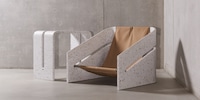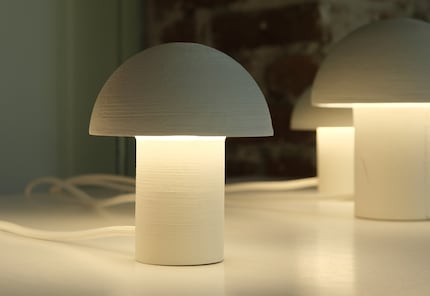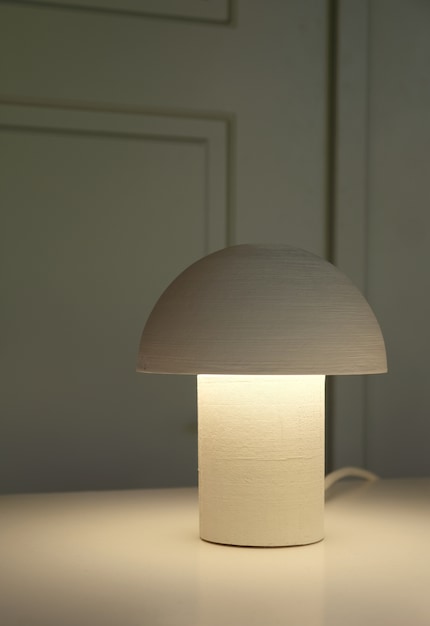
Background information
Less is more: Jean-Paul Brković on the essence of design
by Pia Seidel

Product and interior designer Léa Debernardi showcased her Poppins lamp at Milan Design Week. One of the materials the lamp is composed of is recycled – but what is it? Join the guessing game and cast your vote.
You’re bound to be able to guess where the idea for the name came from. Poppins is inspired by the movie character Mary Poppins and her constant companion, an umbrella. The shape of the lampshade is a nod to the latter. As for the waste material the design is made of, perhaps you’ll be able to guess what it is by using these clues. The correct answer will be revealed at the bottom of the page.
This is the seventh instalment of the «Guess what?» series, in which you can use my clues to guess a design piece’s «secret ingredient». Follow me and be the first to know when the next picture puzzle’s out. You can find previously published articles in the series here:
Header image: Pia SeidelLike a cheerleader, I love celebrating good design and bringing you closer to everything furniture- and interior design- related. I regularly curate simple yet sophisticated interior ideas, report on trends and interview creative minds about their work.
Interesting facts about products, behind-the-scenes looks at manufacturers and deep-dives on interesting people.
Show allFascinated by materials, Léa Debernardi is always looking for new ways to use them. Hailing from Switzerland, she graduated in 2019 as a product and interior designer from HEAD, the Geneva School of Art and Design. Since then, she’s been working as an independent designer, pursuing projects for private clients and public institutions. At this year’s Milan Design Week, the designer revealed her recycled-material Poppins lamp at the group exhibition House of Switzerland.
The material you’re looking for comes in about 3,000 varieties. What they all have in common is that they’re obtained from natural raw materials. During the manufacturing process, the material is wet and can’t actually be used for anything. Once it’s dry, however, it can do all sorts of things. Sometimes, it’s flat as a pancake, such as when you see it at a supermarket checkout. Sometimes, you see it on the street. At home, you’re pretty sure to find it in every room. There are, however, creative whizzes out there, who turn it into three-dimensional objects. Examples include bowls, dresses or, as we’ve covered already, lamps like Poppins.
Submit your tip - you'll find the solution right below.
The competition has ended.

The Poppins table lamp is made of recycled paper. Debernardi developed her own blend specially for this project. The designer conducted numerous tests to determined what kind of paper pulp she needed so that it could be pressed into a mould and turned into a solid mass. Once dry, the end result is both lighter and more robust, and bears a closer resemblance to plastic. The only traces of its origins are its white colour and delicate lines. Light highlights the ribbed structure. The surface is reminiscent of the outside of a neatly piled stack of paper, where the individual sheets become recognisable.
